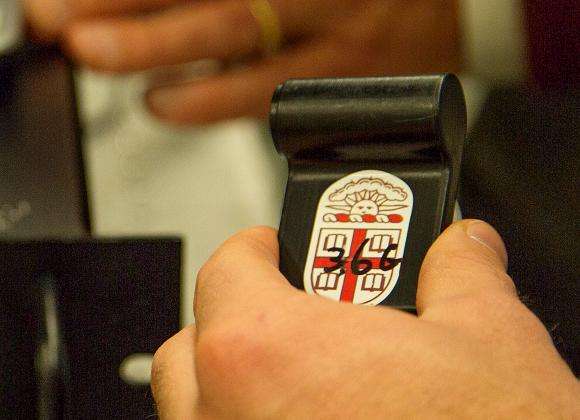Key benchtop testing planned for wireless brain sensor

An important step in the ongoing development and testing of the investigational BrainGate Neural Interface System is creating a wireless version so that future users will not have to be tethered to the system's computers via cable. In recent years Brown University has developed wireless transmitter prototypes, but benchtop preclinical testing is still needed before the technology can be considered for use in a clinical trial.
That testing is now beginning in collaboration with Blackrock Microsystems, the manufacturer that has licensed the Brown technology.
"After years of development led by Professor Arto Nurmikko at Brown University, we have created a low-profile, high-bandwidth wireless device, but translating it to use in people requires specific testing," said BrainGate investigator John Simeral, assistant professor of engineering (research) at Brown University and research biomedical engineer at the Providence Veterans Affairs Medical Center (PVAMC), who is the principal investigator for this new grant. "This project will support that testing as a critical step toward use by people with spinal cord injury and others with tetraplegia or locked-in syndrome."
The work will begin with the support of a new $50,000 grant as part of stage 1 of the Conquer Paralysis Now Challenge. The nonprofit organization's competition to cure paralysis in the next 10 years will ultimately award a $10-million grand prize to the first team that can reach unprecedented improvement in every day functions of people living with chronic spinal injury.
The BrainGate Neural Interface System is an investigational assistive neurotechnology under development for years by a multi-institution collaboration. The goal is to replace or restore lost function and enhance independence for people with paralysis. Dr. Leigh Hochberg, professor of engineering at Brown and director of the VA Center for Neurorestoration and Neurotechnology, directs the BrainGate pilot clinical trials.
The initial proofs of concept resulted from the research of John Donoghue, the Henry Merritt Wriston Professor of Neuroscience. As an individual attempts to make arm and hand movements, BrainGate records movement-related activity from tiny electrodes in the surface of the brain and translates that activity into instantaneous commands to move a computer cursor, a prosthetic arm and hand, a wheelchair, or other assistive technology. The collaboration member institutions are Brown University, Massachusetts General Hospital, the PVAMC, Stanford University, and Case Western Reserve University.
Provided by Brown University

















